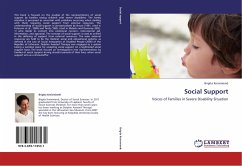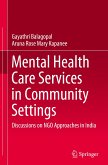This book explores the voices of Japanese women who have experienced mental health problems and mental health professionals working in both clinical and non-clinical environments in order to determine how women's well-being can be improved using the principles of gender-sensitive mental health support. Qualitative, in-depth interviews were carried out with women who had experienced mental distress and mental health professionals. The data collected were analysed within feminist and social constructionist frameworks with reference to gender, stress, power, caring and mental well-being. The results indicate that, in addition to requiring traditional clinical support, women suffering mental distress cried out to receive alternative types of support. In order for women's mental well-being to be improved it is essential that mental health professionals, policy makers and the women themselves, re-evaluate their attitudes towards gender issues. It is also important that support providers realise the potential importance of gender-sensitive support within both non-clinical and clinical environments.
Bitte wählen Sie Ihr Anliegen aus.
Rechnungen
Retourenschein anfordern
Bestellstatus
Storno








